Editor's note: After 55 days and nights of "lightning-speed" marching with the spirit of "one day equals 20 years", the General Offensive and Uprising of Spring 1975 of our army and people achieved complete victory, gloriously ending the struggle to unify the country. It was the result of the Vietnamese people’s steadfast, courageous struggle, full of loss and sacrifice for the goal “Nothing is more precious than independence and freedom”. This great victory ended 30 years of revolutionary war (1945-1975), opening a new era - the era of national independence and socialism. 50 years after the historic victory, the country has entered a new era - "building a glorious, bright future for the Vietnamese people". On this special anniversary, VietNamNet introduces a series of articles with the theme "April 30 - a new era". Experts, military experts, and historical witnesses shared memories, lessons, and experiences from the victory of the resistance war against the US to save the country. That is the strength of great national unity - the source of victory of the resistance war, the will to protect the independence and autonomy of the nation and unify the country, and the belief in entering a new era of national development. It is also a lesson in mobilizing people's strength and gaining international support; a lesson in diplomacy and military in the resistance war for the task of protecting the Fatherland early and from afar. It is the creativity, resilience, and strength of the people's war for the cause of national liberation, a great lesson in promoting internal strength for the cause of building and protecting the Fatherland. |
We respectfully introduce an article by Senior Lieutenant General, Associate Professor, Dr. Hoang Xuan Chien - member of the Party Central Committee, member of the Central Military Commission, Deputy Minister of National Defense.
50 years after the country's reunification, let's look back at the achievements of defense diplomacy in the historical periods of the nation, draw lessons, and from there continue to inherit, promote and further improve the effectiveness of defense diplomacy work, meeting the requirements and tasks in the new situation.
Military diplomacy's mark in the struggle for national liberation and reunification
During the resistance war against French colonialism (1945-1954), under the leadership of the Party Central Committee, President Ho Chi Minh, directly the Central Military Commission, the Ministry of National Defense, military foreign affairs thoroughly grasped the resistance policy of "all-people, comprehensive, long-term, relying mainly on one's own strength", along with State diplomacy resolutely and flexibly implementing the policy of "peace to advance". When making peace with Chiang, focusing forces on the resistance war against French colonialism, then making peace with France by signing the Vietnam - France Preliminary Agreement on March 6, 1946 and the Vietnam - France Provisional Agreement on September 14, 1946, contributed significantly to the successful protection of the young revolutionary government, gaining more time to consolidate forces to prepare for the nation's long-term resistance war.
Implementing the Party's policy of "the Vietnamese revolution is a part of the world revolution", "Indochina is a battlefield", "Helping friends is helping ourselves", Vietnam's military foreign relations during this period were expanded to the West. We sent many cadres and some armed units to fight alongside the armed propaganda teams and the Lao-Vietnamese and Cambodian-Vietnamese joint forces that were stationed on friendly land.
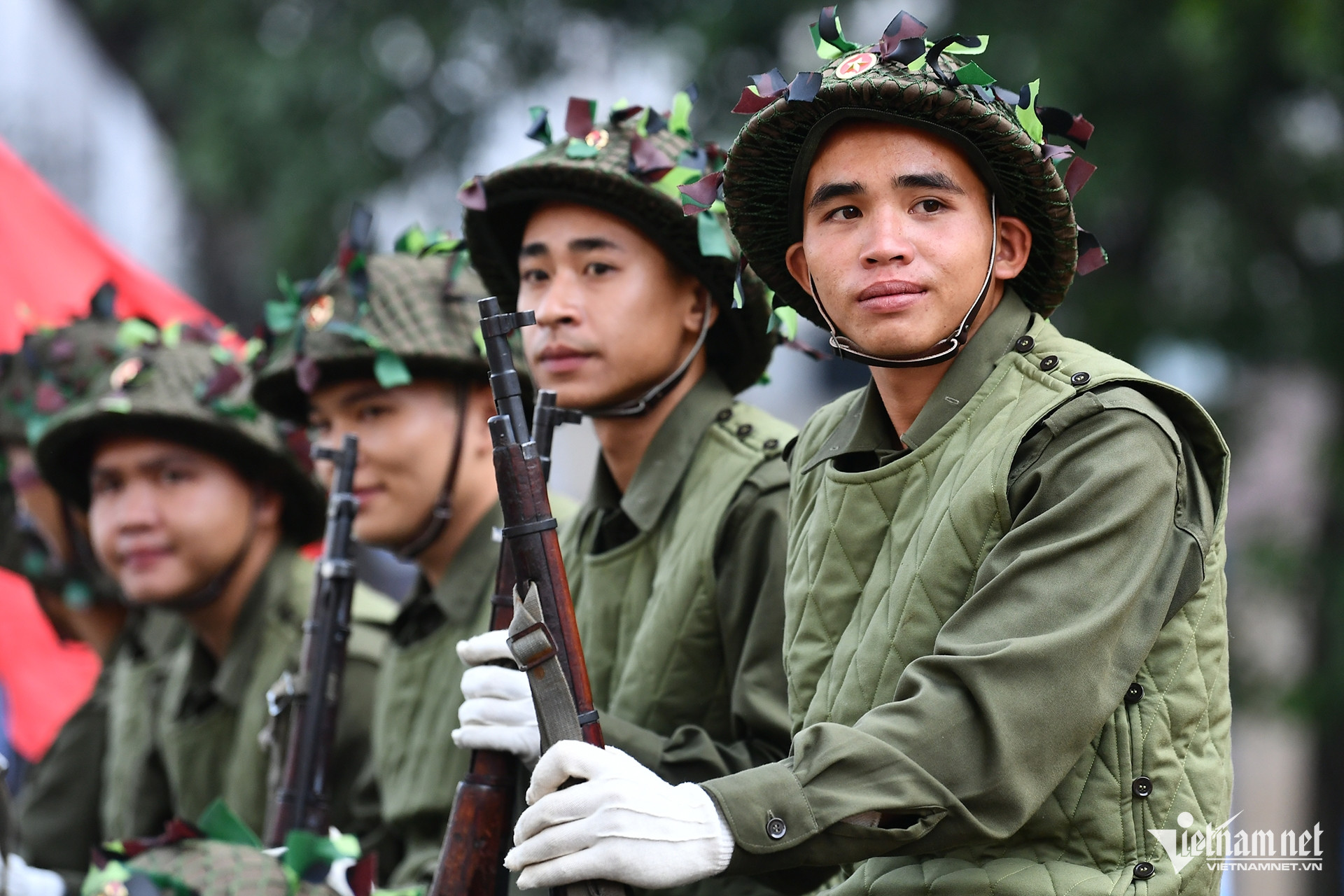
Photo: Hoang Ha
On October 30, 1945, the Lao Itsa-la Government and the Government of the Democratic Republic of Vietnam signed the "Agreement on the Organization of the Lao-Vietnamese Joint Forces". This is considered the first signed document on military cooperation between Vietnam and the first legal basis for the combat alliance relationship between the two peoples as two states.
Along with establishing the Vietnam-Laos and Vietnam-Cambodia fighting alliances, we also expanded our military relations with China. In 1949, at the request of the Central Committee of the Communist Party of China, we sent troops to help our friends build and consolidate the two border areas of Viet Que and Dien Que, and coordinated with the Chinese People's Liberation Army to successfully carry out the Thap Van Dai Son campaign.
To meet the requirements of the resistance war, military diplomacy during this period also carried out the task of welcoming Chinese military advisors to help Vietnam; receiving and effectively using military aid from the Soviet Union and China; and sending cadres to study the combat experience of the Chinese People's Liberation Army, the Soviet Red Army, and the armies of several socialist countries.
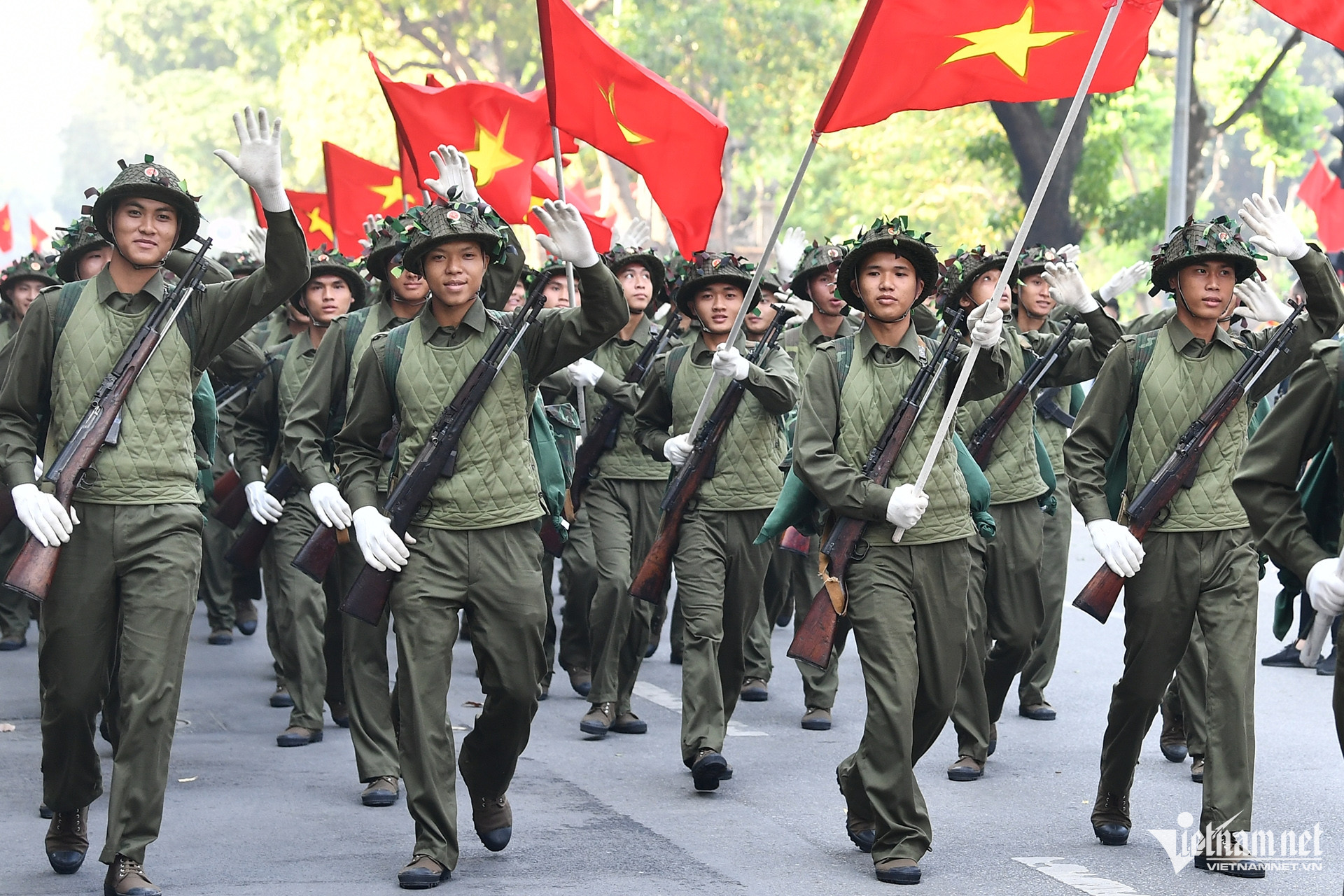
Image of Dien Bien soldiers. Photo: Hoang Ha
The Dien Bien Phu victory on May 7, 1954 successfully ended the resistance war against French colonialism, creating a "new position" and "new strength" for the struggle at the negotiating table at the Geneva Conference. Implementing the agreement at the Geneva Conference, the delegation of the General Command of the Vietnam People's Army and the delegation of the General Command of the French Union Forces in Indochina held the Trung Gia Military Conference (July 4-27, 1954) to discuss and decide on military issues that the Geneva Conference had agreed upon related to the issue of prisoners of war; implementing a ceasefire; adjusting military assembly areas; the Joint Military Committee..., contributing significantly to the success of the Geneva Conference, leaving a strong mark of military diplomacy in Vietnamese diplomacy.
Entering the resistance war against the US to save the country (1954-1975), military foreign affairs focused on one of the key tasks of the Army: consolidating the fighting alliance with the revolutionary armed forces of Laos and Cambodia, seeking the help of socialist countries, the national liberation movement and the world's democratic and peaceful forces for our people's resistance war against the US to save the country.
To promote military cooperation with other countries, Vietnam officially established military attachés in the Soviet Union, China, and Cuba. At the same time, the Soviet Union, China, the German Democratic Republic, the Democratic People's Republic of Korea, Indonesia, etc. also established military attachés in our country. Military diplomacy during this period was an important channel to receive support and assistance from the Soviet Union, China, and friendly and fraternal countries around the world in terms of weapons, equipment, logistics, and military medicine.
During the period 1965-1975, military diplomacy developed rapidly in both scope and scale of cooperation. Vietnam welcomed nearly 6,000 Soviet military experts, 1,500 Chinese experts and experts from Poland, the German Democratic Republic, Hungary, Czechoslovakia, etc. to help exploit, use, preserve and repair weapons and equipment; and welcomed 175 military delegations from other countries to visit for friendship and exchange experiences. Our army also sent 82 delegations of cadres and thousands of students to socialist countries to learn from experience, improve their level of military political theory and combat methods, promptly meeting the urgent demands of the revolution.
During this period, our Army also organized to introduce experiences in force building, political struggle, armed struggle and the art of conducting people's war with armies of many countries in the world, thereby expanding military and defense relations and increasing the prestige and position of the Vietnam People's Army with international friends.
Military diplomacy also made particularly important contributions to the historic Ho Chi Minh Campaign with the establishment of the Four-Party Joint Military Commission, later the Two-Party Joint Military Commission (at Davis Camp) to fight diplomatically, ensuring that all parties strictly implemented the terms of the Paris Agreement, becoming the sixth spearhead - military diplomacy, alongside the five main forces advancing to liberate the South and unify the country.
During the 30 years of revolutionary war, along with the development of the Party and State's foreign policy, military foreign affairs activities have had remarkable development. Through military foreign affairs, we have not only taken advantage of and effectively promoted the strength of international solidarity, but also actively contributed to consolidating and strengthening solidarity within the system of socialist countries, of the national liberation movement and the world's peace and democracy forces, contributing to the successful implementation of the policy of international solidarity, combining national strength with the strength of the times, creating a combined strength to defeat the colonialists and imperialists, completing the cause of liberating the South and unifying the country.
Unifying theory and practice of defense diplomacy contributes to protecting the Fatherland from early on and from afar.
Entering the period of national construction and defense, especially in the light of the Renovation of the 6th Party Congress with the "open" foreign policy, military and defense diplomacy continues to be an important diplomatic channel to maximize the sympathy, support, and spiritual and material assistance of socialist countries and the world revolutionary movement; fulfilling international obligations, actively contributing to the common foreign affairs and diplomatic activities of the Party and State, breaking the embargo, promoting the process of normalizing relations with China and the US, expanding defense cooperation with many countries, contributing to maintaining a peaceful and stable environment for national construction, and strengthening defense potential.
The innovation in thinking about foreign affairs and defense cooperation of our Party and State continues to be developed through the Congresses. The policy of protecting the Fatherland from early on and from afar has been developed and perfected by our Party into a guiding ideology and motto for action throughout the entire Party, people and army; continuing to implement “the unchanging, responding to all changes”; in which, the national and ethnic interests are unchanging, steadfast in goals, principles and strategies, applying flexible and agile tactics, keeping “warm inside and peaceful outside” for the country to develop sustainably.
Defense diplomacy is identified by the Party and State as an important measure to fight to protect the Fatherland early and from afar by peaceful means, while contributing to enhancing the image and position of the country and the Army in the region and in the international arena, and strengthening the country's defense potential.
Thoroughly grasping that spirit, over the past years, the Central Military Commission of the Ministry of National Defense has led and directed the synchronous, comprehensive and effective implementation of defense diplomacy, achieving many important achievements. The Army has actively and proactively advised the Party and State to effectively resolve strategic issues related to military, defense, security, and territorial border tasks, ensuring the highest national interests; not being passive or surprised in any situation.
To date, Vietnam has expanded and established defense cooperation with over 100 countries, including all five permanent members of the United Nations Security Council. Bilateral defense cooperation with countries, especially neighboring countries with adjacent borders, major countries, strategic partners, ASEAN countries and traditional friends, has been promoted, increasingly deepened and substantiated, enhancing political trust, ensuring balanced relations, intertwining interests with all countries on the principles of equality, respect, mutual benefit and compliance with international law, focusing on a number of areas suitable to our needs and capabilities, such as: exchanging delegations, effectively maintaining consultation and dialogue mechanisms; training cooperation; military and service cooperation; border diplomacy, border defense friendship exchanges, overcoming the consequences of war, search and rescue, strategic research, defense industry, military medicine, United Nations peacekeeping..., actively contributing to improving national defense potential.
On the multilateral level, the Ministry of National Defense has been proactively participating and actively contributing to important initiatives at regional and international multilateral mechanisms and forums, especially within the framework of the ASEAN Defense Ministers' Meeting (ADMM), the ASEAN Defense Ministers' Meeting Plus (ADMM+); Shangri-La Dialogue, the Beijing Xiangshan Forum, the Moscow International Security Conference, etc. Thereby consolidating and enhancing strategic trust, affirming the consistent viewpoint and the "four no's" defense policy in international relations.
The Vietnam People's Army's proactive participation in United Nations peacekeeping operations, humanitarian assistance, and disaster relief has contributed to enhancing the position, prestige, and image of a friendly, peace-loving, and highly responsible nation towards the international community, which has been recognized and highly appreciated by UN missions, agencies, and the people of the host country. Since 2014, Vietnam has deployed more than 1,100 officers and soldiers to participate in peacekeeping operations at United Nations missions, both individually and as units.

Troops from Level 2 Field Hospital No. 6 and Engineer Team No. 3 set off for a United Nations peacekeeping mission in South Sudan and the Abyei region. Photo: Pham Hai
Defense diplomacy has made many contributions to the cause of building the Army, strengthening national defense, and protecting the Fatherland. We have mobilized more external resources to gradually modernize weapons and technical equipment, improve the level and combat capability of the Army and the country's defense strength; strengthen trust with countries and international organizations, contribute to maintaining a peaceful and stable environment for national development; and actively contribute to maintaining peace, stability and development in the region and the world.
Promoting the tradition of humanity, loyalty, and consistency of the nation and the country's diplomacy, defense diplomacy always pays attention to consolidating traditional relations and expressing gratitude for the wholehearted and righteous help that countries have given to the people and the Vietnam People's Army during the difficult and arduous years of fighting for national liberation and reunification.
On the occasion of the 80th anniversary of the founding of the Vietnam People's Army and the 35th anniversary of the National Defense Day, the Ministry of National Defense organized meetings to express gratitude to veterans of the Soviet Union (now the Russian Federation), China, and international friends who have helped Vietnam and invited veterans to attend the celebration and visit Vietnam again. Thereby, contributing to strengthening the defense relations between Vietnam and other countries in the new situation.
The outstanding achievements of defense diplomacy during the process of building and defending the Fatherland have affirmed the correct and creative foreign policy of the Party, the State, the Central Military Commission, and the Ministry of National Defense, especially the lesson of ensuring the unified leadership and direction of the Party, the unified centralized management of the State, and the direct and regular management of the Central Military Commission and the Ministry of National Defense in defense diplomacy work.
It is a lesson on upholding the spirit of independence, self-reliance, promoting the strength of the great national unity bloc in conjunction with gaining international support and cooperation; creatively, flexibly and effectively applying the international solidarity viewpoint of Marxism-Leninism and the Party's military and defense line, Ho Chi Minh's ideology and diplomatic style, and Vietnam's diplomatic tradition to the country's new conditions, identifying defense diplomacy as a strategy to protect the Fatherland early and from afar by peaceful means. It is a lesson on closely combining defense and security with foreign affairs, promoting diplomatic strength, and creating a combined strength in the cause of building and defending the Fatherland.
Entering a new phase, with new position and strength after nearly 40 years of renovation, under the light of the 13th Party Congress's guidelines, our country is entering a new era, an era of national growth, realizing the aspirations and development goals by the middle of the 21st century to become a socialist-oriented developed country, a milestone of historical significance for our nation on the path to realizing the goal of a rich people, strong country, democracy, fairness and civilization.
In the context of the complicated and unpredictable developments in the world and the region, in order to continue to promote the pioneering role of foreign affairs in creating and maintaining a peaceful and stable environment, mobilizing external resources for national development, enhancing the country's position and prestige, defense diplomacy needs to continue to thoroughly grasp the guidelines and viewpoints of the Party, the Central Military Commission, and the Ministry of National Defense on defense diplomacy as defined in the Resolution of the 13th National Party Congress, the Resolution of the 11th Military Party Congress; Resolution of the 8th Central Committee, 13th tenure, on the Strategy for National Defense in the new situation; conclusions and directives of the Politburo, the Secretariat, the Central Military Commission, and the Ministry of National Defense on international integration and defense diplomacy in the new situation. Determining national interests is the ultimate goal of defense diplomacy activities. Persistently pursue an independent, self-reliant foreign policy, diversify and multilateralize foreign relations, closely combining with the "four no's" principle in defense policy to maintain balance in relations with other countries.

Army practicing for a parade. Photo: Thach Thao
Defense diplomacy must be part of the Party's general foreign policy strategy, State diplomacy, and people's diplomacy to promote the overall strength in the field of foreign affairs; be steadfast in principled issues, but flexible in responding to and handling each specific case and time based on the fundamental principles of the United Nations Charter and international law, equality, cooperation, and mutual benefit; closely combine foreign affairs with defense and security to serve the cause of national construction and protection.
Continue to proactively research and grasp the world and regional situation, promptly advise on handling issues related to defense diplomacy, ensure the highest national and ethnic interests, and avoid being passive or surprised. Actively promote international cooperation activities on both bilateral and multilateral levels effectively and practically, in which promoting defense relations and cooperation with neighboring countries with adjacent borders, major countries, strategic partners, ASEAN countries, and traditional friends continues to be the top priority in defense diplomacy.
Strengthen information and propaganda work on defense diplomacy; continue to perfect the system of legal documents related to defense diplomacy, in accordance with the requirements and tasks in the new situation; closely coordinate with central and local departments, ministries and branches in exchanging and sharing information, researching strategies and implementing defense diplomacy work; strengthen training and fostering of cadres to meet the requirements of defense diplomacy in the new situation.
The outstanding marks of defense diplomacy throughout the process of building and defending the Fatherland have affirmed the correct and creative foreign policy of the Party and State; the remarkable growth of the Vietnam People's Army in foreign affairs under the direct leadership and direction of the Central Military Commission of the Ministry of National Defense. The cause of building and defending the Fatherland in the new situation poses very high requirements and tasks, requiring defense diplomacy to continue to apply and promote the traditions and achievements that have been achieved; innovate thinking and action to reach new heights, effectively serving the cause of building and defending the Fatherland in the new era of the country.
Vietnamnet.vn
Source: https://vietnamnet.vn/doi-ngoai-quoc-phong-gan-voi-nhung-moc-son-choi-loi-cua-dan-toc-2386229.html




![[Photo] Ha Giang: Many key projects under construction during the holiday season](https://vphoto.vietnam.vn/thumb/1200x675/vietnam/resource/IMAGE/2025/5/1/8b8d87a9bd9b4d279bf5c1f71c030dec)





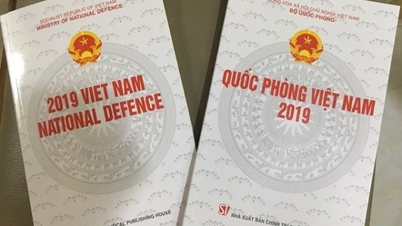
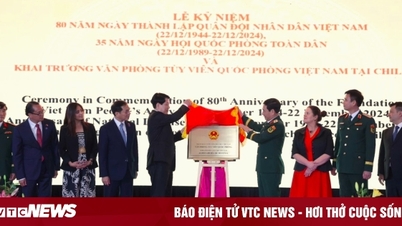


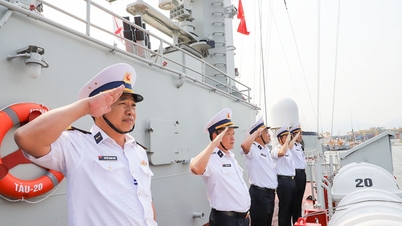
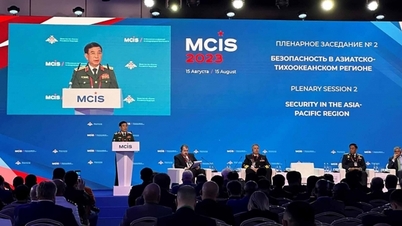



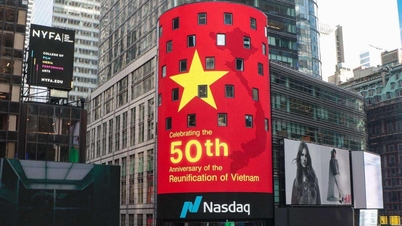
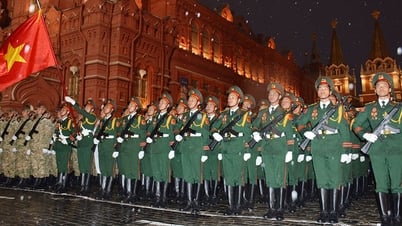






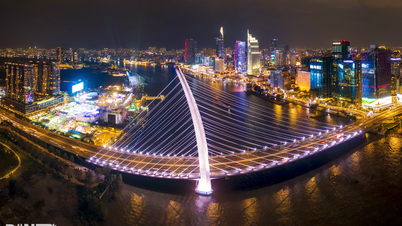


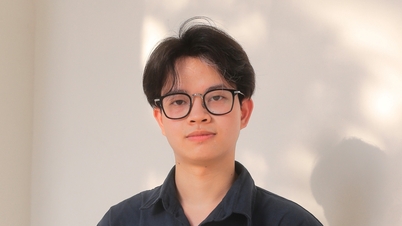

![[Photo] Feast your eyes on images of parades and marching groups seen from above](https://vphoto.vietnam.vn/thumb/1200x675/vietnam/resource/IMAGE/2025/4/30/3525302266124e69819126aa93c41092)

![[Photo] Fireworks light up the sky of Ho Chi Minh City 50 years after Liberation Day](https://vphoto.vietnam.vn/thumb/1200x675/vietnam/resource/IMAGE/2025/4/30/8efd6e5cb4e147b4897305b65eb00c6f)




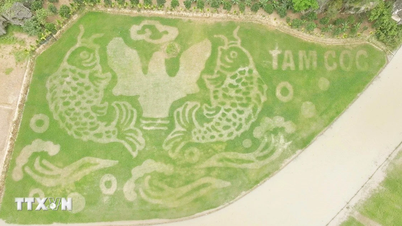









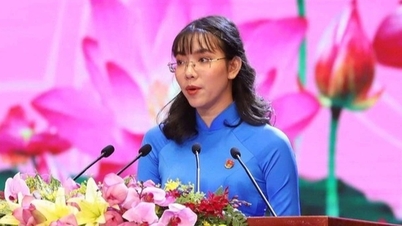


























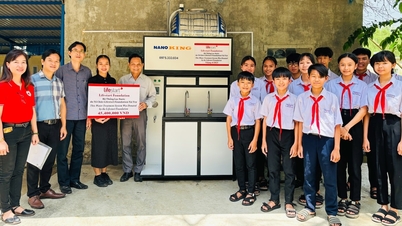

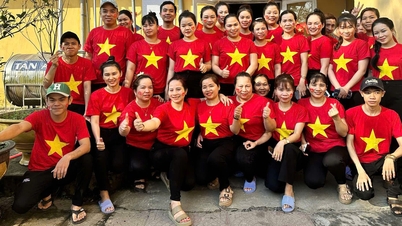

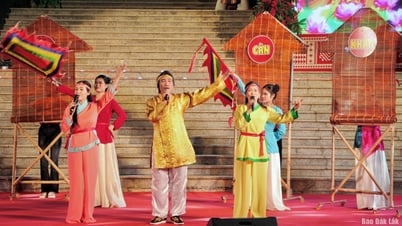




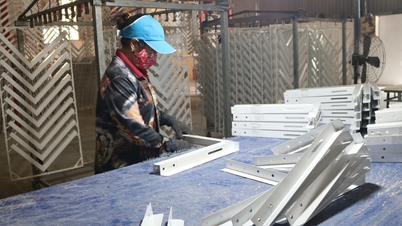












Comment (0)